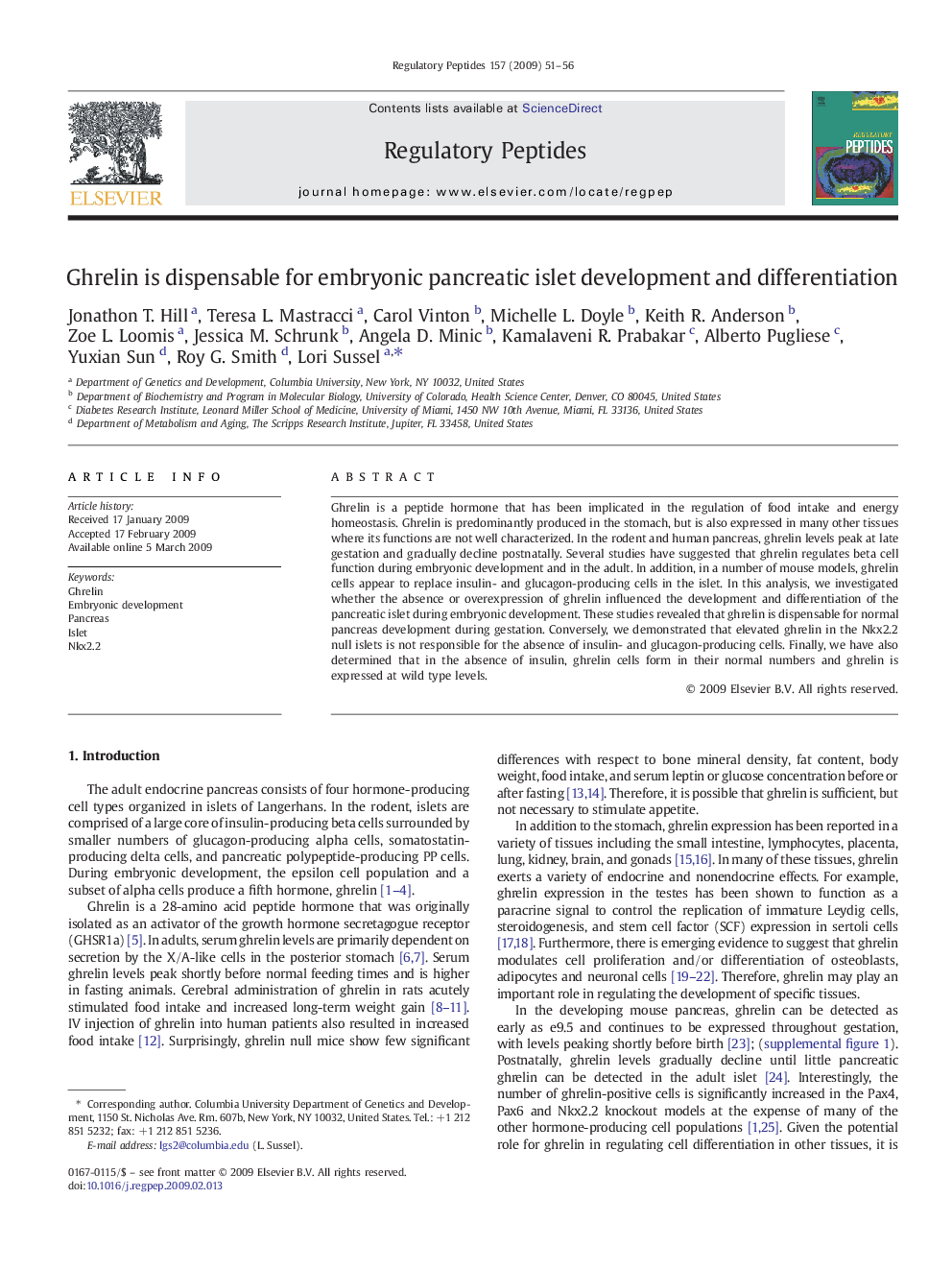| Article ID | Journal | Published Year | Pages | File Type |
|---|---|---|---|---|
| 2023051 | Regulatory Peptides | 2009 | 6 Pages |
Ghrelin is a peptide hormone that has been implicated in the regulation of food intake and energy homeostasis. Ghrelin is predominantly produced in the stomach, but is also expressed in many other tissues where its functions are not well characterized. In the rodent and human pancreas, ghrelin levels peak at late gestation and gradually decline postnatally. Several studies have suggested that ghrelin regulates beta cell function during embryonic development and in the adult. In addition, in a number of mouse models, ghrelin cells appear to replace insulin- and glucagon-producing cells in the islet. In this analysis, we investigated whether the absence or overexpression of ghrelin influenced the development and differentiation of the pancreatic islet during embryonic development. These studies revealed that ghrelin is dispensable for normal pancreas development during gestation. Conversely, we demonstrated that elevated ghrelin in the Nkx2.2 null islets is not responsible for the absence of insulin- and glucagon-producing cells. Finally, we have also determined that in the absence of insulin, ghrelin cells form in their normal numbers and ghrelin is expressed at wild type levels.
